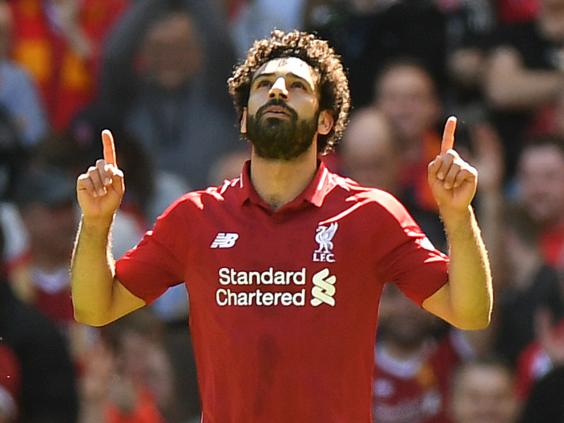
Egypt soccer hero Mohamed Saleh plays for Liverpool FC
Liverpool’s defeat in the European Champions League final in Kiev on 26 May featured a wonder goal by Real Madrid’s Welsh striker Gareth Bale, two errors by Liverpool goalie Loris Karius and the injury of Mohamed Salah.
For football fans, it was gripping.
But why should anyone else care?
Football’s a sport, but with a difference.
It makes more money globally than any other.
The 2018 World Cup finals are projected to generate at least $5bn in advertising revenue. That’s probably about twice as much made by the 2016 summer Olympics.
It compares with about $4.5bn made by UK football premiership clubs in total in 2017/18.
And the amounts made are rising.
The financial stories that interest football fans most are about how much top players earn.
The world’s best paid player Barcelona’s Lionel Messi is estimated to have made more than $40 million in the 2017/18 season. Ten earned more than $15m last year.
These mind-boggling figures are overwhelmingly due to sponsorship and advertising bought by corporations, not the amounts coming directly from spectators.
They’re paying to boost the perceived value of their brands.
Those are intangible assets.
Corporations are investing a smaller portion of their total assets in tangibles like machinery and buildings. The amounts going into intangible ones are increasing.
Football is working to ensure its share of this avalanche of money continues to grow.
There’s talk of expanding the FIFA world club championship, held every four years. This could make $25bn in 2021-33, FIFA president Gianni Infantino says.
The good news for top players is that their pay will probably continue to go up.
Football fans may find that disturbing, but there’s no sign they’ll stop watching.
Most seem to believe that football stars and other successful sportsmen and sportswomen deserve every penny they get.
It’s perverse that the income gap between those who play at sports top levels and those who watch is bigger now than can be found among producers and consumers in most other industries.
But is it objectionable?
For economists, the issue is less complex.
Why are top footballers becoming so rich?
The conventional answer is that it’s about the interplay between demand and supply.
The reality is that it’s nothing to do with that.
It’s because of the rise of the intangible economy, the declining appetite for tangible assets and laws, rules and codes that enable corporations to turn ideas into balance sheet assets.
Mohamed Salah is a football hero lionised in Egypt which he’ll represent next month at the World Cup finals.
It’s said natural talent and his humble upbringing made him.
That’s true.
But he probably owes more to the irresistible rise of the intangible economy and those that are profiting from it.